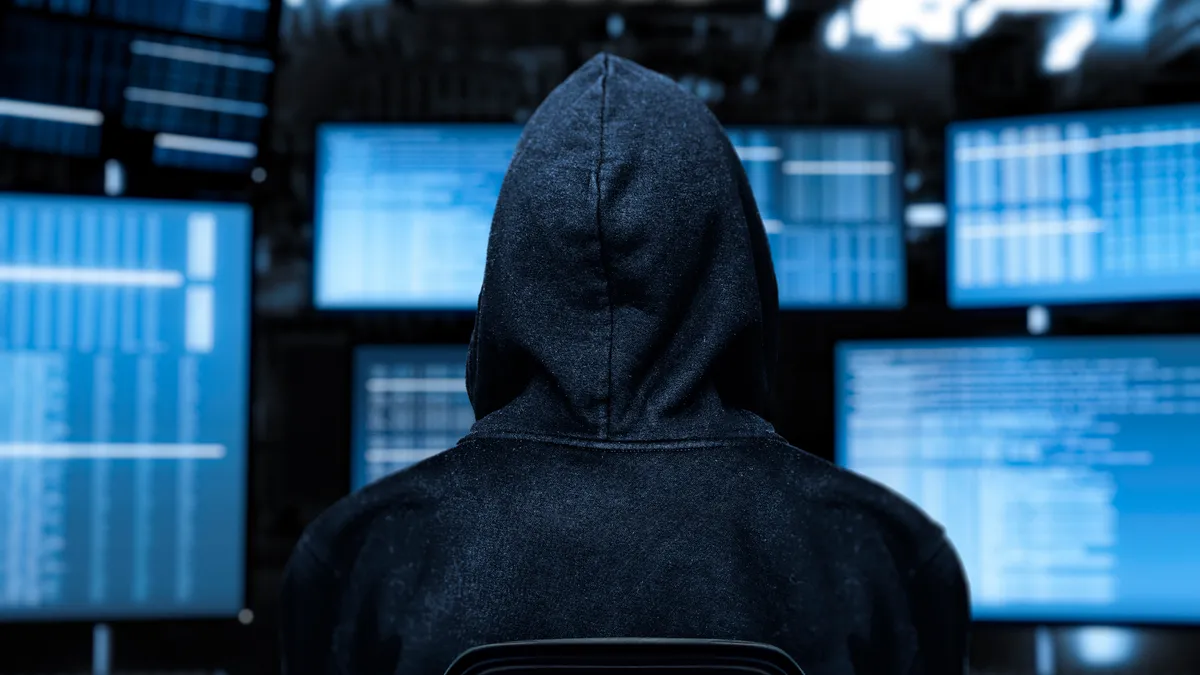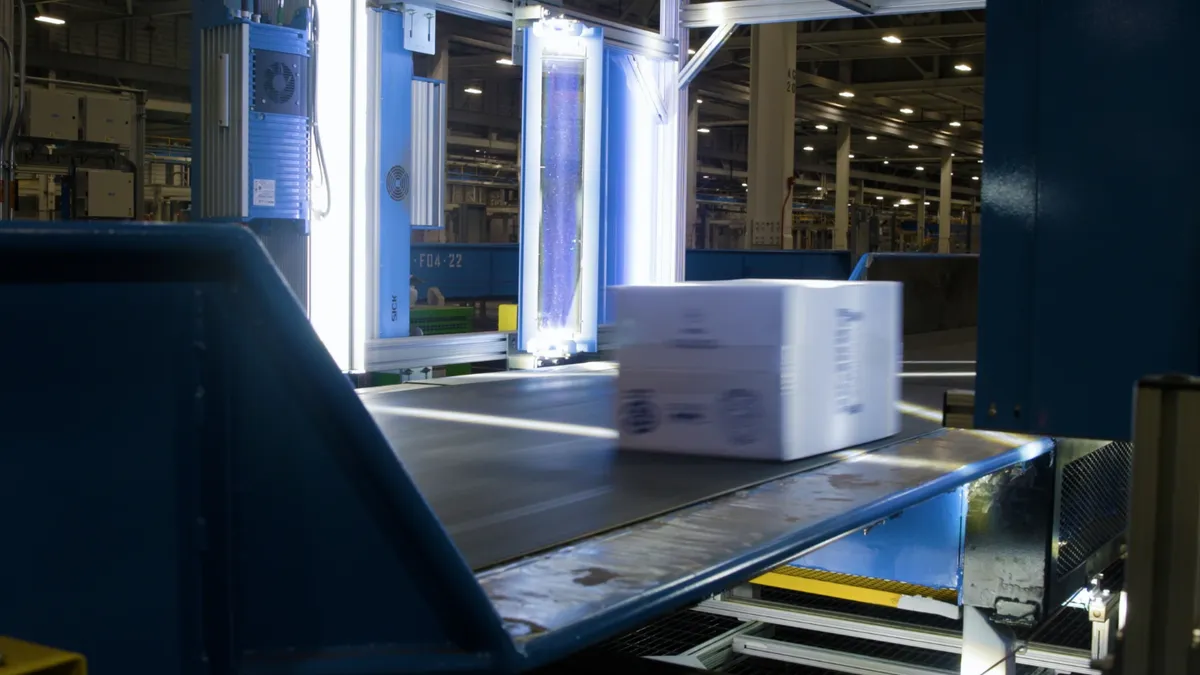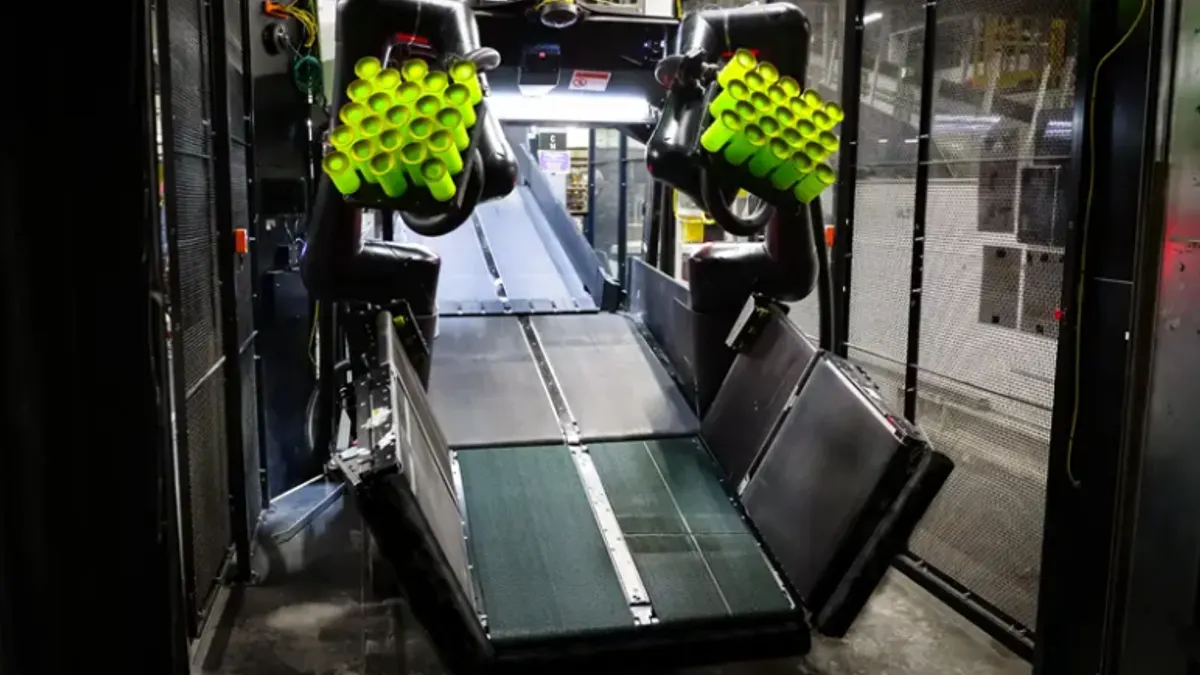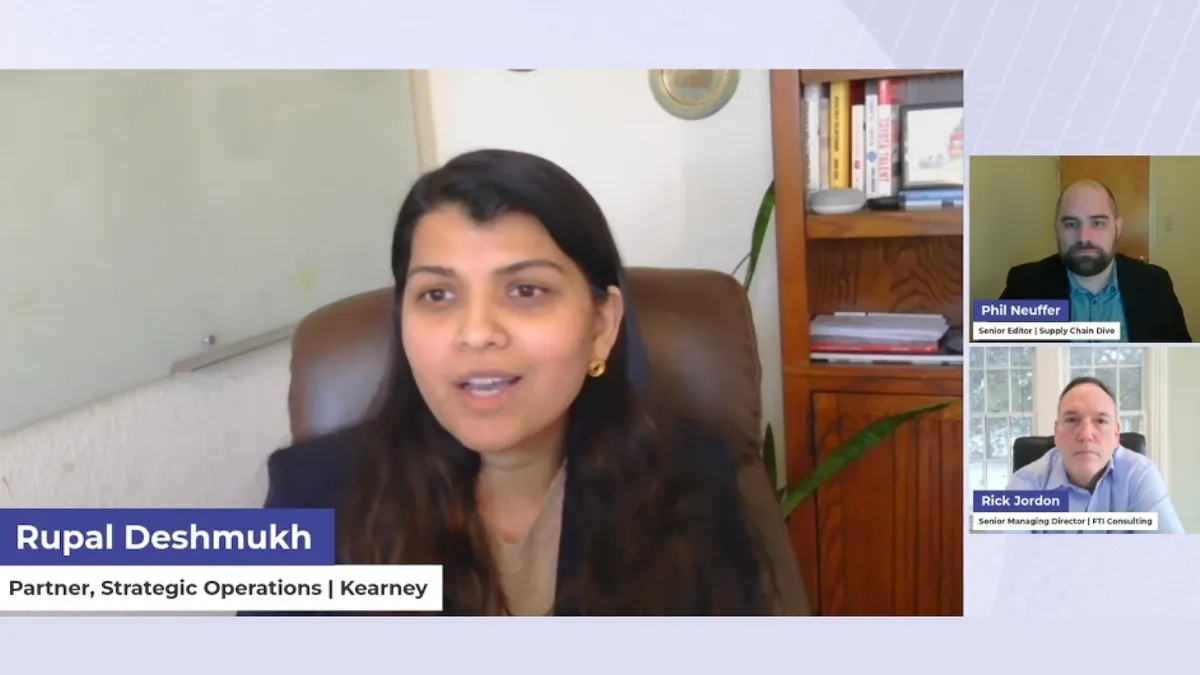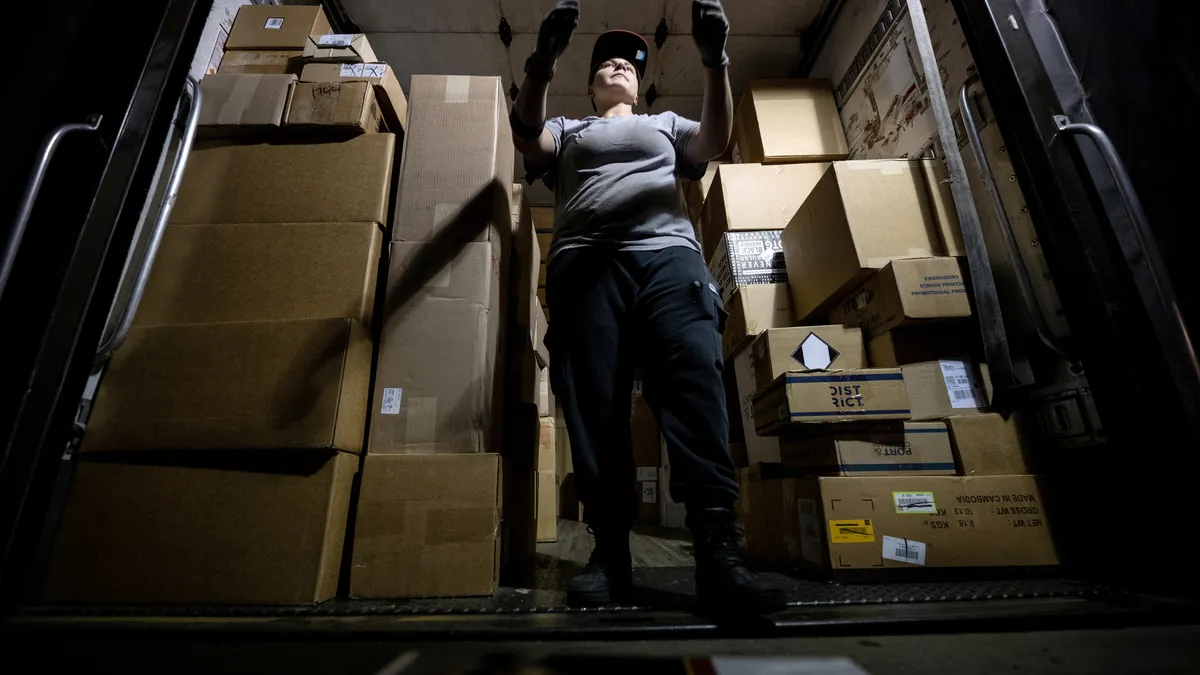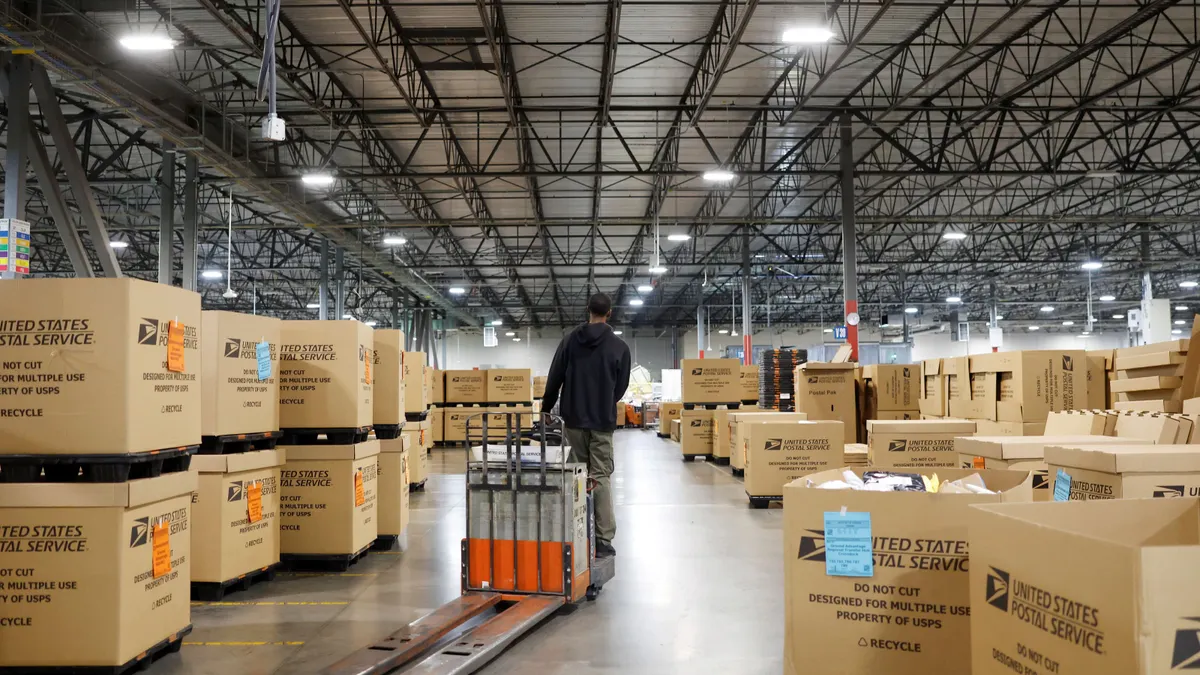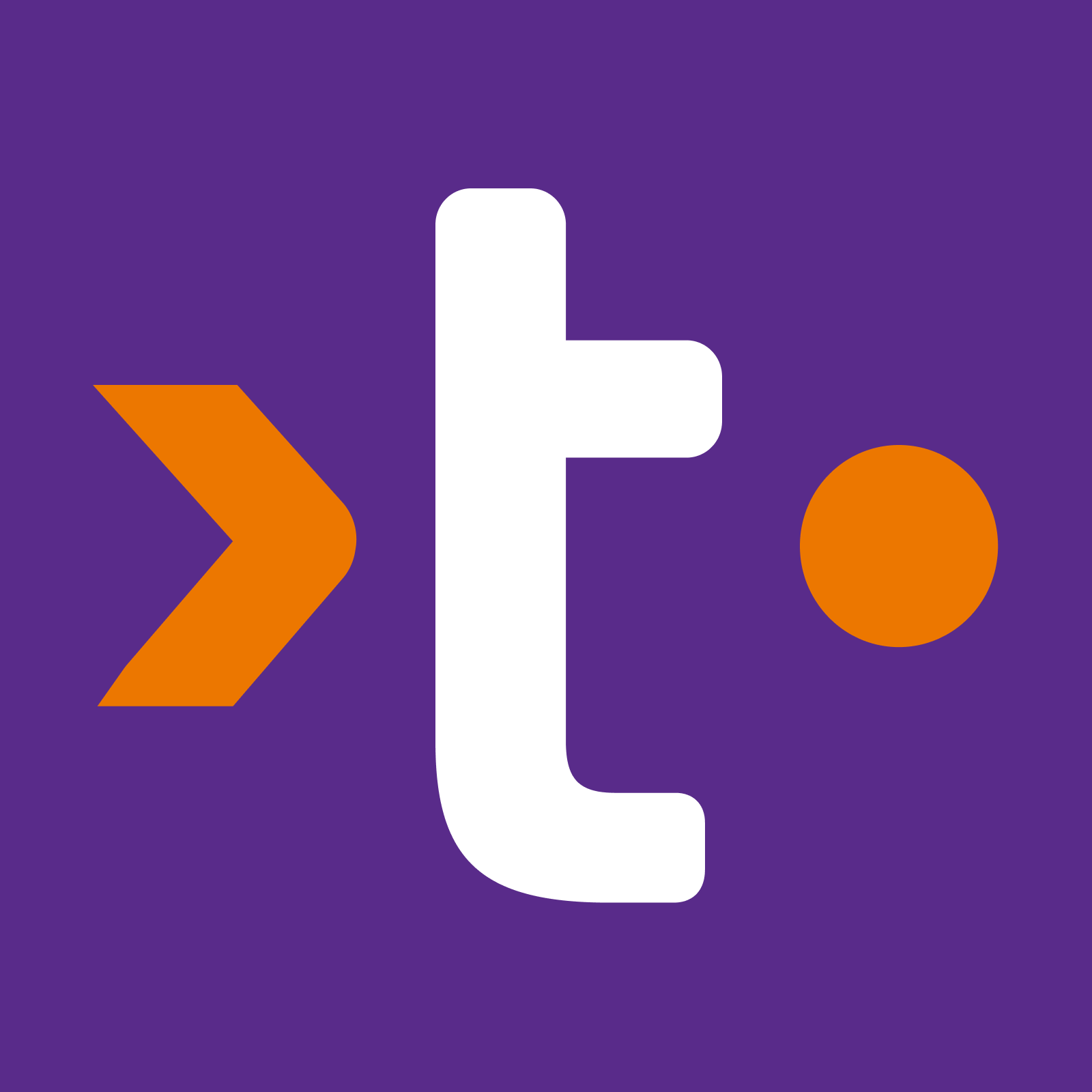In Case You Missed It
- An in-depth look into how Lehigh Valley became a logistics hub.
- Under Armour's profits fell 58% due to a botched ERP implementation.
- Has Trump kept his supply chain promises? Here's a report card.
Market Snapshot
This Thanksgiving, supply chain managers can add recruiters to their list of people to be thankful for, at least according to recent data: workers were both hired more and were more productive in Q3.
The Wall Street Journal reports companies hired 8,400 transportation and warehouse employees in September and October, and business sector productivity rose 1.5% compared to last year and 3% from the previous quarter. Companies are looking for ways to escape a talent shortage pervasive to the industry, and while the figures reflect a short period, they are doing something right.
In other news, tax reform dominated headlines this week, as Congress pushes to get a bill on President Donald Trump's desk by Christmas. Last week, Supply Chain Dive looked at the bill presented at the House of Representatives. This week, the Senate presented their own version of the tax reform, which presents an additional problem: reconciliation.
If Congress wants to pass tax reform, the two chambers have to agree on what that would look like. And although the GOP has been working hard to get behind a singular message, The New York Times outlines eight issues that will be especially troublesome.
Technically Speaking
According to a report from The Wall Street Journal, Waymo just announced a partnership with Auto Nation to develop "robovans" — aka self-driving delivery vans. Waymo has been working on autonomous vehicles for a while, but this move is big for the trucking industry, as Waymo is one of the big innovators in the space. Even though Congress tabled the autonomous trucks discussion and nixed truck standards from the AV START Act, innovation plows ahead. If companies keep up this pace, Congress will likely have to revisit autonomous trucks again very soon.
Waymo also successfully tested an autonomous van on Tuesday, in which a van drove itself while employees sat in the back seat, not in control of the wheel.
In other news, Mazda plans to release cars with hybrid engines — electric batteries fueled by rotary engines — in order to meet emissions standards in the U.S. Mazda has made these types of cars before, but discontinued them in 2012. Given the aggressive approach to emissions in Europe as more governments push sustainability, hybrid engines are likely to become more common as the transition between traditional piston engines to electric cars.
Breaking Ground
Amazon just announced plans to build a new 855,000 square foot fulfillment center in Baltimore County that will employ 1,500. According to the Baltimore Sun, it will be Baltimore's fourth Amazon warehouse, as the e-commerce giant expands in a growing regional market.
Not to be outdone, Ikea plans to lease 3 new warehouses in Texas, and the first one in Baytown will be one million square feet and employ 200 workers, the Houston Chronicle reported.
In other news, just a week after the Port of Charleston announced its dredging plans, Georgia port officials said they're asking Congress for federal funding to deepen the Savannah River. The Atlanta Journal-Constitution reported that the Port of Savannah has seen a significant uptick in container traffic over the past year, and the state wants to encourage more and bigger ships to use the port.
Mergers and Analysis
Deals are picking up speed as 2017 winds down, as companies look for competitive advantages in changing markets.
Sometimes, though, a competitive advantage comes in the way of simply not falling behind — or being taken off the road. A recent Reuters article suggests drivers' push for higher pay and the upcoming electronic logging device mandate is driving a string of mergers and acquisitions in the trucking industry.
So far this year there have been 44 public deals in the freight transportation and logistics space, according to Thomson Reuters data. That's up 15.7% from the 38 deals in 2016, and does not include any private deals, of which there are likely many.
Yet, the trucking industry is not alone in the rising scale and number of mergers. This year has seen numerous mega-mergers across the supply chain, whether in the grocery space or the shipping industry. And if recent news are any indication, more are still to come. A few, notable examples:
- McKesson on Monday said it would buy CVS Health's pharmaceutical services unit
- Tesla, riveted by production issues, bought Perbix an automated machine OEM
- Nestle bought Chameleon Cold Brew, its second coffee maker buy in as many quarters
- Starbucks sold its Tazo tea brand to Unilever
Markets are changing and legacy players are doing their best to stay ahead of the game. Any bets on who is next on the buy list? Send tips to [email protected].






